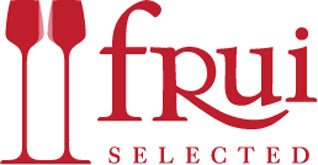 PRODUCTEUR: Covinas
PRODUCTEUR: CovinasCEPAGE: 🍇Grenache
TYPE VIN: Vin mousseux rosé (>8°5)
APPELLATION: Cava (Cataluña)
🟫 Calcaire - argile - sable
🌥Méditerranée - hivers doux - ensoleillé
VITICULTURE:
🌿 .
✋🚜After a careful selection of our best Garnacha grapes, these are harvested early
VINIFICATION:
🍷 The grapes undergo gentle pressing and a short, cold maceration. Winemaking continues to follow the traditional method, with a first fermentation in stainless steel tanks and a second fermentation in bottle, with the cava resting horizontally on racks for a minimum of 9 months.
DEGUSTATION:
👁 Bright and pink in colour with small, long-lasting bubles.
👃 Red fruit with a backdrop with hints of patisserie and jam.
👅 Elegant in flavour, both fresh and light alonside a deligthful touch of sweetness.
VIN et METS:
🍽 Seafood, fish and chocolate cake
Le grenache noir ou garnacha est un cépage espagnol importé dès le Moyen-âge dans le Languedoc, dans la Vallée du Rhône et en Provence. Il est aujourd’hui l’un des cépages les plus cultivés au monde après le merlot et le cabernet-sauvignon. Dans la vaste surface de vignobles espagnols, le garnacha est le cépage rouge le plus planté.
Le grenache est très productif et supporte bien les chaleurs extrêmes. Ses grappes, assez fournies de baies, donnent un jus très sucré.
Les vins issus de Grenache sont caractérisés par un goût très fruité. Ils sont plutôt forts en alcool et peu acides. Vous y détecterez mûre sauvage et poivre.
Typicité: fruits noires - cacao - épices
Cava est devenu le plus important vin mousseux du monde. Chaque année on produit plus de 150 millions de bouteilles de cava. Le cava est vinifié selon la méthode traditionnelle. Le mot espagnol «la cava» signifie 'creux' ou 'tranchée' et s'utilisait pour une cave voûtée. Vers 1800 le mot 'cava' connaissait une connotation noble, comme il indiquait les ventes de boissons à la famille royale espagnole. Terroir: Calcaire - argile - sable Climat: Méditerranée - hivers doux - ensoleillé


